Aisha Nyandoro is the chief executive officer of Springboard to Opportunities, a nonprofit organization that provides programs and services for families living in federally subsidized affordable housing, aiming to honor their needs and dreams. They advocate for policy changes, including guaranteed income, that help support families and break the cycle of poverty.
Tell us about Springboard to Opportunities and its importance to the community here in Jackson.
Springboard started 20 years ago. When we got started here in Jackson, Mississippi, it wasn’t just about changing the landscape and being an asset to the community within Jackson – it was really about changing the conversation around how we talk about affordable housing, and how we talk about services for families in affordable housing. Springboard to Opportunities provides programs and services for families that live in federally subsidized affordable housing. We pride ourselves on the fact that we are radically resident driven. What that means is that we center the needs of families in every program, service, evaluation, design that we provide. And that is radically different than most residents’ service providers, because most providers really are in service to the property: “What is happening with the apartment complex? How do we make sure that the bottom line of this community stays in the black?” But for us, we ask: “How are the families that live within those affordable housing communities? How do we make sure that we are honoring their dreams, their desires, their needs for themselves and their families? And how do we go about making sure that they have the supportive services to go about actualizing those needs?”
When we started, we were in one affordable housing community here in Commonwealth Village, and we started with an after school program, because our families told us that their kids needed a safe place to go after school, and we wanted to honor that. We served 100 kids in that community, and since then our footprint has just grown. We now have everything from afterschool programs, workforce development, fellowships and guaranteed income work. And our work is just not impactful here within the Jackson community; we really do have a national footprint as we talk about economic justice and what it looks like to support families that live in extreme poverty, and how we really do need to change the conversations from a personal failing around poverty to how we go about changing federal standards to better support families within these communities.
What policy would you like to see at the federal level?
One change that we are trying to see really relates to better cash based policies. For us specifically, that’s guaranteed income. Since 2018, we’ve run a guaranteed income project here called the Magnolia Mother’s Trust, which was the first guaranteed income project in this country. It’s currently the longest running guaranteed income project, where we center the needs specifically of low income Black mothers into the conversation around economic justice. We’re providing $1,000 a month for 12 months, no strings attached.
When we started this work in 2018, it was this “radical” idea – it should not be radical that you go about giving families the financial resources that they need to be successful, but it was a radical idea about what happens when you go about giving individuals money. Our desire was to actually prove that you can give poor folks money, that families know exactly what it is that they need for themselves and their families. And when you give them the financial resources, they go about doing just that: taking care of their family. So when we talk about federal policies, really, how do we go about reforming our social safety net, where it’s not punitive, it’s not vouchers and subsidies, but more families have the cash resources that they need, so there is a guaranteed income for all families that need it.
We’ve actually seen what that looks like within this country. The Child Tax Credit expansion that we had in 2021 is really a guaranteed income for families who have kids. For a six month period, the majority of Americans with kids received financial resources from the federal government. We saw in real time the impact that those resources had, and in less than six months, we cut our poverty in half within this country.
We have been working to move the needle on child poverty for over 40 years, and in six months we accomplished that goal.”
So how do we go about taking the proof and the data that these policies actually can be implemented, that we actually can afford it, that they actually do work and go about making sure they are expanded and that they’re permanent?
How do we get there in Mississippi?
We have to get back to talking about advocacy and power building. We have got to begin to make sure that those individuals who are most impacted by these harmful policies actually understand the connection between systems policies in their day to day lives. So many of the families we work with actually don’t understand that connection, rightfully so. We’re not teaching politics or political education or any of these pieces within our schools. The mainstream narrative is so strong, and the mainstream narrative is constantly telling you that is an individual failing. If you’re constantly being bombarded with the individual failing, rather than questioning the systems or the policies, you’re questioning yourself.
A perfect example of this: I remember having a conversation with one of the moms that we work with. She was a childcare provider, and she was beating herself up: “You know what, I really should learn how to save more, I am not saving enough money.” And I asked, “Well, why don’t you think that you’re not saving enough money? Or that you should learn how to?” She said, “Well, you know, because at the end of the month, I never have anything left.” So I asked, “Well, how much are you making?” And she said, “Well, I’ll make $10.10 an hour.” So I asked: “Well, is that enough?” And she was caught off guard. “What do you mean, ‘is it enough?’” And I asked again, “Is that enough money?” And she said, “Well, you know, yeah, it’s enough money.” And I asked, “Well, why do you think that’s enough money?” And she said, “Well, that’s because it’s what they pay.” And I thought: “Oh dear no. Let me give you some hard truths:
The reality is that data shows that we need $15 an hour to at least survive, but you’re talking about thriving and trying to save. But you’re not set up in a position to even be able to save, because you are at a disadvantage at the front end.”
And she had never thought about it that way before. That’s when you begin to have conversations about systems and policies and how we go about disrupting the setup. We’ve got to get back to connecting those dots for our families.
We launched a policy and advocacy and power building fellowship based off of this very real understanding that we have got to begin to connect the dots between policies and systems change for our families, helping them understand their power and shifting the narrative and shifting the policies that we need, so that they are actually able to live a life in which they can thrive. Not only when it is an election season, but that activation of their voices as a year round, 365 day cycle. That looks like understanding what’s happening at your local city council meeting, understanding who is on your city council, who your county supervisors are. If you are troubled by what is happening within our water system here in Jackson, what is your role in that? How do you go about making sure that your voice is heard? We really are trying to disrupt the setup. We understand that based on the strong civil rights history here in Mississippi: the way that you go about changing systems is by mobilizing the people. So our role is to mobilize the people, mobilize our residents. The movement needs to be led by those individuals who are most impacted.
Where’s the opportunity for the community to influence the solutions and the outcome of the water crisis?
Right now it’s a billion dollar fix that needs to happen. When you talk about change needed at that level, it’s not a community issue, it really is an economic issue. How do we make sure that we have the elected officials in place to make sure that the capital city receives the resources that they need? We need to make sure that we’re putting officials in place that recognize the entire state, not just subsets of the state as having agency.
It is collective trauma that we as a city are experiencing that we’ve not unpacked, because it’s still ongoing. Jackson is currently going through a water crisis, but we weren’t first and we won’t be last. Flint still doesn’t have clean water – we’re not talking about that. There’s a city in Ohio that doesn’t have clean water – we’re not talking about that. Nationally, they feel like our crisis is over, since it’s no longer in the news. So next year, there’ll be another city whose infrastructure fails. We’ll rally together for a couple of weeks with donations in water, and then when it is done, they’ll go back to not having clean water, and we’ll move on because we’re not having the conversation as it relates to infrastructure and climate change that we need to be having to actually go about resolving these issues.
When the water crisis started, like everyone, we mobilized to make sure that our families actually had bottled water. It became very clear to us immediately that this wasn’t going to be something that was resolved within a week or two. So we began thinking “Okay, as an organization that is radically residential driven, as an organization that really does believe in the power of cash, how do we make sure that we just give our families money?” So we started, within the second week of the crisis, deploying financial resources to the 700 families that we work with here in Jackson, Mississippi, where we’re providing $150 a month for purchasing water or whatever they need.
What inspires your leadership?
Leadership is a choice. And if you are not equipped to make the difficult decisions that it takes to be a leader, that maybe leadership isn’t the choice that you should make. Everyone doesn’t have to be a leader. I am very fortunate that I get to sit in this seat of positional power; it is a seat that comes with an immense amount of responsibility. And I choose each day to make sure that I am using my blessing to be a blessing. How do I use this seat of positional power to ensure that I am making the road easier for someone else? And I do that simply because I know how many others have invested in me. It is my role and my responsibility to make sure that I am equipped to make the hard decisions, to make sure that my team is equipped to make the hard decisions, to make sure that we are constantly advocating for the families that we work with, who may not have quite found their voices yet, because society has been working for decades to ensure that their voices are snuffed out. I’m just a placeholder, and there is an immense amount of pleasure and an immense amount of responsibility that comes with that. It gives me immense joy to know that I am doing exactly what I was called to do in this moment, that I have responded in a way that I really think my ancestors will be proud of, and that 30 years from now, when I am retired and sipping tea on my porch somewhere, there will be kids who are now adults whose lives have been made better because of the small footprint that I had. They won’t know my name. They won’t know the organization. None of that matters. But the small footprint that I’ve had will have made a difference in their lives.
I have the pleasure of being a granddaughter of the Civil Rights Movement. My maternal grandmother, Dr. L.C. Dorsey, was a veteran of the Civil Rights Movement here in Mississippi. I had that same pleasure of learning directly from her and all of her colleagues about movement building, and what it looks like to change systems and be a disrupter. I do what it is that I do because it’s in my DNA. When I was a child, dinner conversations at my grandmother’s table were never frivolous. It was:
Okay, how do we go about making our community better? What does that look like? How do we change systems? How do we disrupt narratives? What is necessary? What is our role in the space of the positional power that we have to ensure that we are making others’ lives easier?”
And so when I get up every day, I am emboldened with that reality that I am the granddaughter of Dr. L.C. Dorsey. How dare I not get up and disrupt and make sure that I am making the world better for those who may not have the opportunities that I currently have.
What brings you hope?
Let’s be very clear. Less than 1% of philanthropic dollars coming to the South go to organizations that are led by Black women. There are systems that are designed for me to fail at every turn. In my upbringing, I was never coddled into what it would mean to be Black and a woman and a leader in the context of the state, in the context of the backdrop of our nation’s history. But not only that, I was always also very equipped with what it would take to be a leader within this space. And so what others may see as obstacles I see as opportunities to disrupt the status quo. Instead of looking at what’s obvious, I look at the possibilities.
I have some amazing colleagues throughout Mississippi that I get to work with. I love that about being in Mississippi; everything is less than six degrees of separation. In every question that you’ve asked me today, I’ve been thinking: are you talking to this person? Are you talking to that person? That’s really what gives me hope: knowing that there is collective power in this state, and that we are all collectively working together to make sure that the children and families of this state are truly thriving, and that we are just not giving that lip service, it is not a tagline;
we are pounding the pavement, building the advocates, pushing for the legislation, providing the programs and filling the gap – that we are really doing everything necessary to turn this state around.”
Read More
- Every Child Thrives, “Cash with no strings attached: Changing the narrative of Black mothers and the social safety net”
- PBS News, “In Mississippi, a long-running guaranteed income program is helping Black mothers”
- PBS News, “Why cities are piloting guaranteed income programs”
- 19th News, “Magnolia Mother’s Trust marks a history-making three cycles of paying Black mothers $1,000 a month”
- WABE, “Magnolia Mother’s Trust supports Black women with guaranteed income payments”

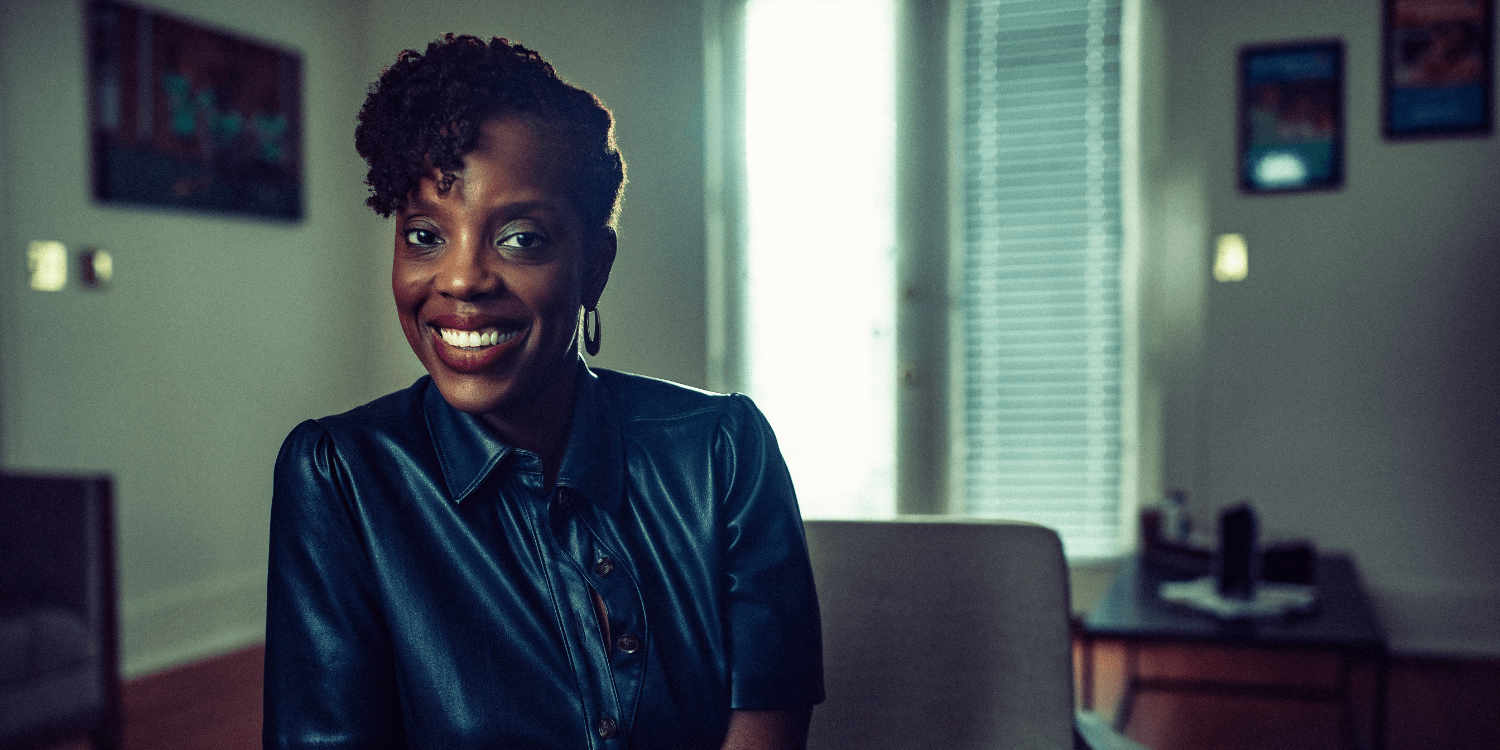
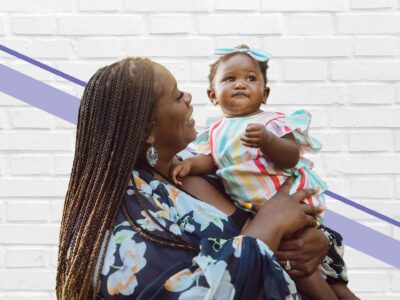
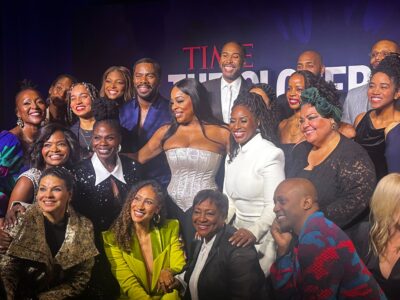
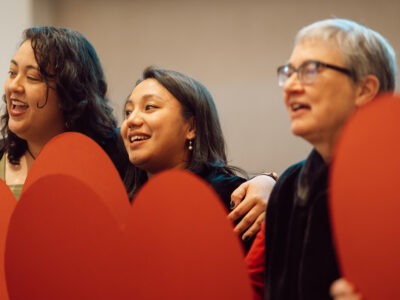


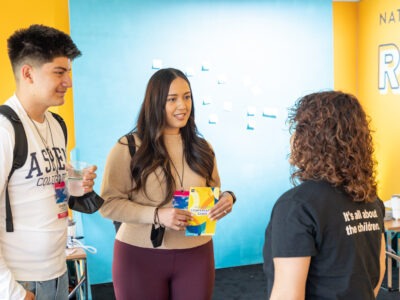

Comments